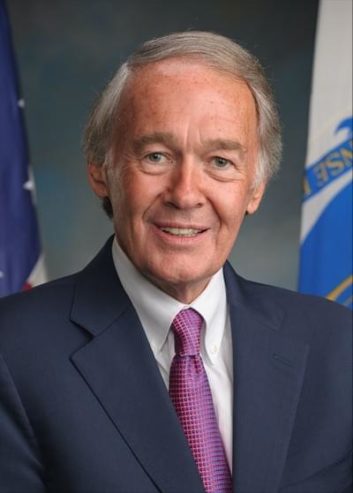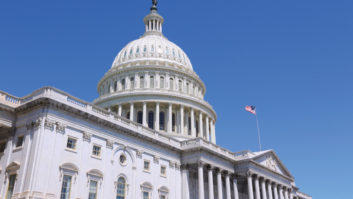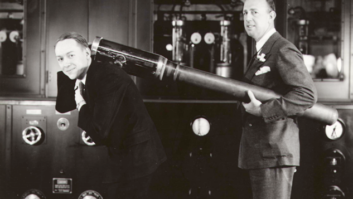 AM broadcasters in the United States who are worried about losing their place in car dashboards are getting support from an influential Democrat on Capitol Hill.
AM broadcasters in the United States who are worried about losing their place in car dashboards are getting support from an influential Democrat on Capitol Hill.
Sen. Ed Markey of Massachusetts has written to 20 carmakers urging them to maintain broadcast AM radio as a feature in future cars, including electric vehicles.
Markey also asked each carmaker to tell him, in writing, whether they have decided to discontinue free AM and/or FM radio in any vehicles.
Markey is a member of the Senate Commerce, Science and Transportation Committee. His letter was sent to all the big names: General Motors, Ford, BMW, American Honda, Hyundai, Jaguar, Kia and so on.
“Although EVs can cause electromagnetic interference with AM radio signals, car manufacturers appear to have developed innovative solutions to this problem,” Markey wrote.
“Therefore, as the United States works to meet President Biden’s goal of 50 percent electric vehicle sales by 2030, we urge your company to maintain broadcast AM radio in its vehicles to ensure that consumers have access to critical emergency response information.”
In the letter — which, judging from the length and nature of its contents, was almost certainly prepared in coordination with the National Association of Broadcasters — Markey emphasizes the role of AM radio as a source of news and entertainment as well as an “essential medium for public safety officials — including the president — to communicate with the public during emergencies.”
He noted that AM radio uses lower frequencies and longer wavelengths than FM radio, “so AM radio waves more easily pass through solid objects. As a result, AM radio signals can travel long distances, making them well-suited for broadcasting emergency alerts.” The letter noted the ongoing efforts by FEMA to harden the infrastructure reliability of AM stations that are central to the EAS system.
Markey wrote that any phase-out of broadcast AM radio could pose a significant communication problem during emergencies. “FEMA officials — in both Democratic and Republican administrations — have hailed broadcast radio as the most dependable communication medium during an emergency,” he reminded carmakers.
He said he was aware that some automakers have begun discontinuing AM in new vehicles, particularly electric vehicles. “Manufacturers have argued that batteries and other technology in EVs create an electromagnetic interference with AM radio waves, significantly impairing audio quality. Although this interference is real, automakers have developed innovative technologies to address this problem. For example, research suggests that digital broadcast radio — through which consumers can receive AM stations — is less susceptible to electromagnetic interference than analog AM radio.”
He pointed out that the European Union mandates that all new vehicles be equipped with digital radio. “Many EVs today are equipped with AM radio, demonstrating that many automakers do not view EVs and AM radio as technologically incompatible. As EVs rightfully become a greater share of new vehicles, automakers cannot defend the elimination of AM radio as necessary due to electromagnetic interference.”
Markey asked the car companies to answer three questions in writing: First, have they decided to discontinue access to free AM and/or FM broadcast radio in any vehicles, and if so which ones, but if not, what technology are they using to addresses electromagnetic interference in EVs? Second, do they have any plans to omit AM and/or FM broadcast radio from future vehicle models; if so why? And third, do they include “free, digital broadcast radio” in their vehicles, if so which ones?
NAB President/CEO Curtis LeGeyt welcomed the Markey effort. “Local radio has a vital place in the auto dashboard and broadcasters remain committed to collaborating with auto manufacturers to address interference and any other concerns that prohibit listeners from easily accessing this essential service,” LeGeyt said in a statement.







